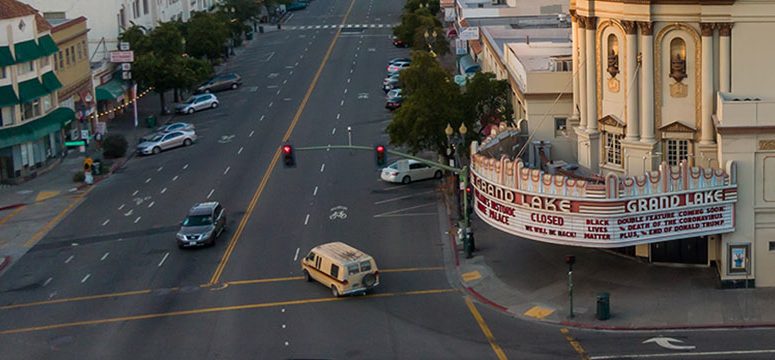The second hearing in three days on the Obama administration's
proposal for national transit safety rules made headlines mostly for
its affect on the Washington D.C. area, where Sen. Barbara Mikulski's
(D-MD) blistering critique of the local Metro rail system prompted high-level management switches.
 "There's
"There'sa saying in our business," APTA President William Millar (above) said
Thursday. "If you've seen one transit system, you've seen one transit
system."(Photo: TTI)
But
the hearing, held Thursday by the Senate Banking Committee's transit
panel, also offered an illuminating look at the advantages of -- and
obstacles to -- effective transit safety oversight by the federal
government.
Both witnesses and Democratic senators echoed a message delivered by
House members earlier in the week: Without a coherent plan to bring
U.S. transit equipment into a state of good repair, a task with a price
tag of at least $50 billion, bringing in the Federal Transit Administration (FTA) to monitor state inspectors would still leave yawning safety gaps.
John Catoe, general manager of the D.C. Metro, warned that the "combination of increasing transit demand and
infrastructure and lack of sufficient funding will continue to form
a perfect storm that will eventually undermine transit success."
Sen.
Jack Reed (D-RI) concurred with Catoe, observing that sufficient funds
to upgrade transit equipment and safety would be the best solution.
"[I]f we subsidized these transit systems at the rate we
subsidize the airline infrastructure and the road infrastructure, these
problems might be self-correcting because the money would be adequate
to do this," Reed said. "And I think every system wants to do this."
But
as the federal deficit climbs and fiscal conservatives flex their
muscle in both chambers' Democratic caucuses, the prospects of
adequately funding transit appear bleak.
So American Public
Transportation Association (APTA) President William Millar and Brian
Cristy, director of transportation oversight at the Massachusetts
Department of Public Utilities, focused on how to eliminate some of the
real-world hurdles to federal transit safety regulation.
Cristy's
group is considered one of the nation's stronger state safety oversight
(SSO) agencies, but he has endorsed the Obama administration's plan to
provide a federal check on under-performing transit overseers.
Cristy
suggested that the transit safety proposal could be strengthened if
Washington provided "a federal venue for SSO agencies to seek fines for
issues of non-compliance on the part of the transit system." The fines
ought to be imposed by the FTA "on behalf of the SSO," he added.
Millar
focused on the FTA's stated goal of ensuring that state transit safety
inspectors have the appropriate knowledge to oversee local rail
networks. "The fact of the matter is, there aren't colleges and
university and community technical schools turning out these type of
safety experts in public transportation," he said.
But Millar noted that FTA chief Peter Rogoff has asked him to prepare a
rundown of the academic development work necessary to train a corps of
transit safety experts, perhaps at one or more universities that
already have similar transportation engineering programs in place.
As
for the overall effect of bolstering transit safety spending, Millar
made a prediction that may trouble riders who are already facing
service cuts and fare increases. Safety funding, the APTA leader said,
is likely to be diverted from operating budgets, "which will impact the
levels of operations."
The Obama administration's proposal
envisions the FTA blessing transit safety regulators, but both Millar
and Reed, one of three Democrats to speak at the Senate hearing, agreed
on the importance of passing on that seal of approval to the transit
agencies themselves.
"There's a difference between certifying
an agency and certifying a system," Reed said. "There is a lot of
agencies operating systems that aren't that good."
The
chairman of the Banking Committee's transit panel, Sen. Robert Menendez
(D-NJ), said he hopes to mark up the administration's transit safety
plan sometime early next year.





